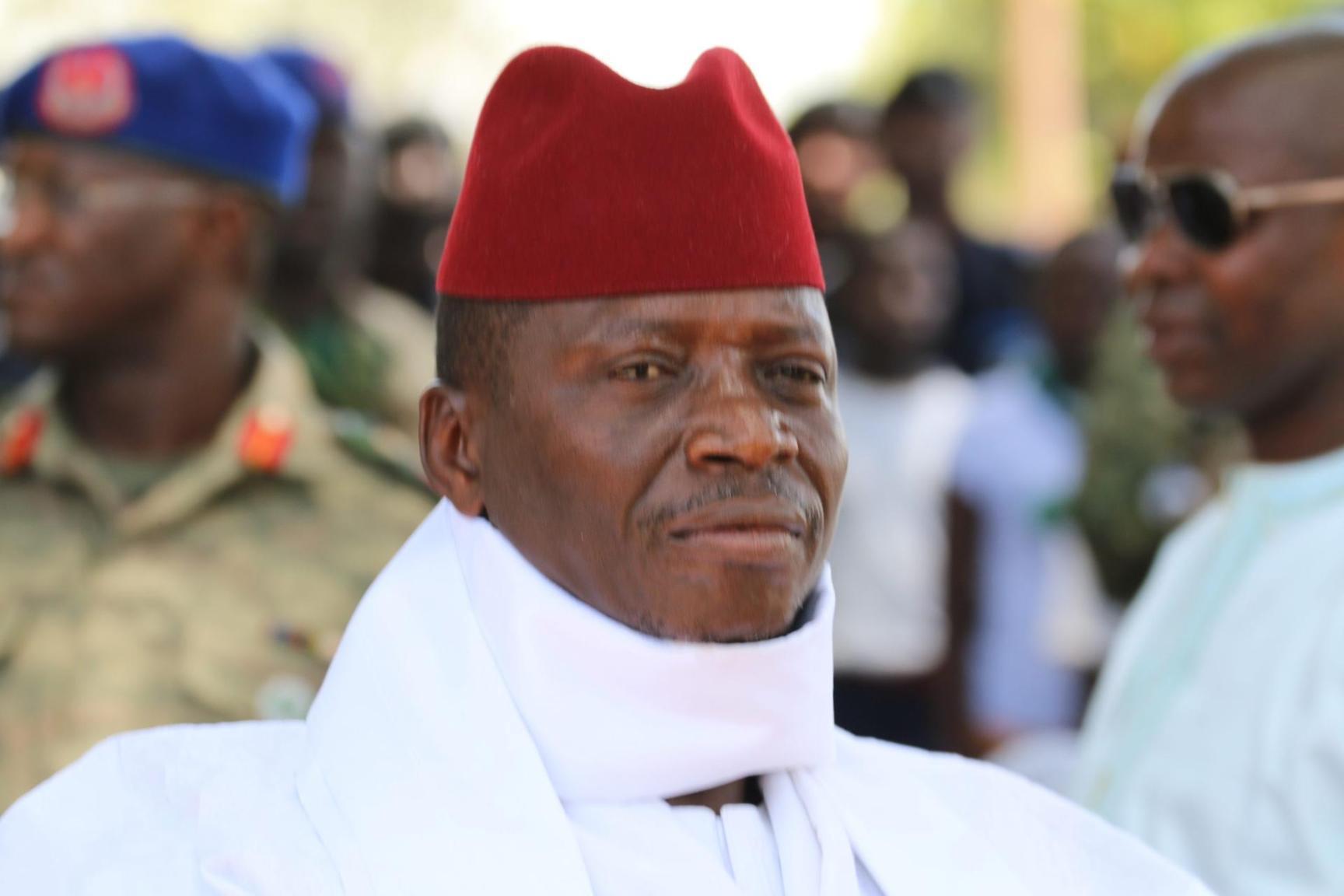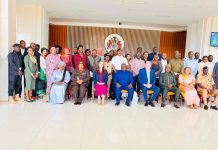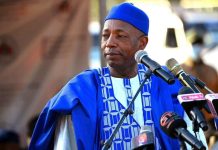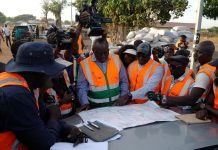By Abdoulie Mam Njie
Africa-Press – Gambia. Last week, The Gambia’s political landscape reminded everyone how vivid and unpredictable it remains. Supporters of UDP leader Ousainu Darboe welcomed him home in a wave of yellow, while an audio message from former president Yahya Jammeh, broadcast from Equatorial Guinea, sparked national debate.
Darboe urged his supporters to respect the law and traffic regulations — a message echoed by the UDP and by authorities commending the professionalism of the police and airport staff. Jammeh, for his part, called for peace and civility among his followers. Across the board, there was a shared emphasis on discipline — a small but significant reflection of democratic maturity.
Yet Jammeh’s renewed declaration to “soon return” has reignited debates about legacy, justice, and national direction. It is a stark reminder that in Gambian politics, the past continues to cast a long shadow.
The weight of history
From 1994 to 2017, Jammeh’s rule was marked by strong central authority and personal leadership. His departure in 2017, following regional mediation, marked both an end and a beginning — a close to one era and the fragile birth of another.
The TRRC documented Jammeh-era experiences and produced recommendations for justice, healing, and institutional reform. Implementation has been gradual, reflecting the complexity of transition. Democracy in The Gambia is still evolving through institutional consolidation, legal reform, and sustained public dialogue.
Regional backing: Ecowas support
Ecowas has played a pivotal role in The Gambia’s democratic journey. During Jammeh’s 2017 exit, the bloc, alongside the African Union and United Nations, facilitated a peaceful transition.
Recently, Ecowas reaffirmed its support for The Gambia’s transitional justice process. In July 2025, its advisers highlighted backing for judicial reform and accountability mechanisms, including the establishment of a hybrid court to prosecute Jammeh-era crimes. While internal discussions continue about the court’s structure, Ecowas’ endorsement strengthens The Gambia’s institutional readiness and international legitimacy.
This support underscores that Gambian reforms are not purely domestic; they carry regional significance, reinforcing reconciliation, justice, and stability.
Why the shadow endures
Jammeh’s continued relevance is rooted in several factors:
1. Entrenched networks: Political and social structures from two decades remain part of the national fabric.
2. Ongoing reform: TRRC recommendations, the hybrid tribunal, and institutional reforms are still underway.
3. Public expectations: Citizens seek visible progress in governance and services. Slow change can stir reflection on the past — not always in nostalgia, but in search of decisiveness and consistency.
These elements ensure Jammeh’s name remains central to national discourse — a symbol of both progress made and work still to be done.
Security and Readiness
The Gambia today is better equipped to manage potential tensions. Security institutions, including the Armed Forces, Police, and intelligence services, have strengthened in professionalism and civilian oversight.
Ecowas and other regional partners remain available for diplomatic and technical support. Yet the ultimate guarantor of peace lies in Gambians themselves: upholding the law, rejecting provocation, and prioritizing national interest above partisan loyalties.
Symbolism and reflection
Jammeh’s statements are as much symbolic as strategic. They remind the nation of the interplay between leadership, accountability, and memory. For some, they evoke stability and familiarity; for others, pain and loss.
If approached with maturity, these conversations can strengthen national unity, encouraging a focus on justice, performance, and reconciliation rather than personalities.
The way forward
To consolidate democracy, The Gambia must focus on:
· TRRC implementation to pair justice with healing;
· Institutional reform for a professional, equitable public administration;
· Enhanced service delivery to make progress tangible;
· Dialogue and inclusion to sustain national consensus;
· Engagement with Ecowas to ensure decisions align with regional commitments to peace and legality;
· Civic responsibility as the anchor of stability.
· This coordinated approach strengthens sovereignty and democratic credentials while demonstrating that reconciliation is inclusive and lawful.
Conclusion
The debate over Jammeh’s possible return is ultimately about more than one individual. It reflects how far The Gambia has come, and how much remains to build enduring institutions.
Leadership — past or present — is measured by contributions to peace, justice, and unity. As the nation reflects on Jammeh’s words, it must also look forward: to a future where the past can speak without dividing, where memory teaches without haunting, and where shared progress speaks louder than any single voice.
Listening to that interview reminded me that no seminar, book, or mentor can replace self-understanding. The journey inward is the hardest and most rewarding one we’ll ever take. We can move to new cities, change careers, or meet new people, but if we carry the same mindset, we’ll keep recreating the same experiences. Real peace, real growth, comes from the inside out.
So instead of asking, “What should I do next?” maybe the better question is, “Who am I becoming?” Because once we begin to truly know ourselves—beyond the noise, the names, and the roles—we stop walking in circles. We begin to walk forward, with clarity, purpose, and peace.
Source: The Standard Newspaper | Gambia
For More News And Analysis About Gambia Follow Africa-Press






